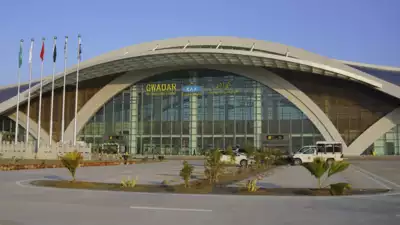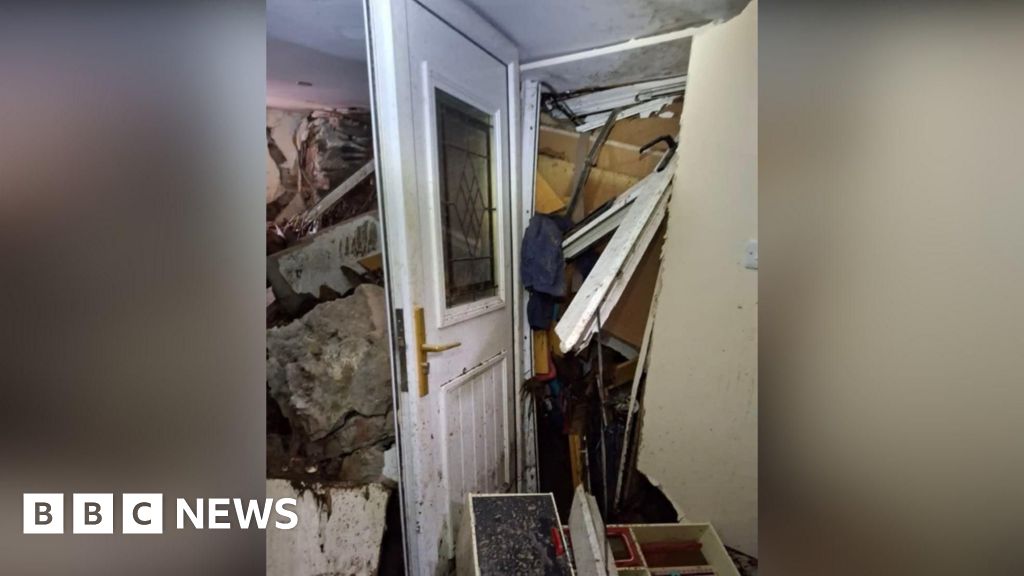
Gwadar airport in Pakistan (Pic credit: AP)
With no passengers and no planes, Pakistan's newest and most expensive airport is a bit of a mystery. Entirely financed by China to the tune of $240 million, it's anyone's guess when
New Gwadar International Airport
will open for business. Located in the coastal city of Gwadar and completed in Oct 2024, its a stark contrast to the impoverished, restive southwestern
Balochistan province
around it.
For the past decade, China has poured money into Balochistan and Gwadar as part of a multibillion dollar project that connects its western Xinjiang province with Arabian Sea, called the
China-Pakistan Economic Corridor
or CPEC.
Authorities have hailed it as transformational but there's scant evidence of change in Gwadar. The city isn't connected to the national grid - electricity comes from Iran or solar panels - and there isn't enough clean water. An airport with a 400,000 passenger capacity isn't a priority for the city's 90,000 people.
"This airport is not for Pakistan or Gwadar," said Azeem Khalid, an international relations expert who specialises in Pakistan-China ties. "It is for China, so they can have secure access for their citizens to Gwadar and Balochistan."
CPEC has catalysed a decadeslong insurgency in resource-rich and strategically located Balochistan. Separatists, aggrieved by what they say is state exploitation at the expense of locals, are fighting for independence - targeting Pakistani troops and Chinese workers in the province and elsewhere. Members of Pakistan's ethnic Baloch minority say they face discrimination by govt and are denied opportunities available elsewhere in the country, charges govt denies.
Pakistan, keen to protect China's investments, has stepped up its military footprint in Gwadar to combat dissent. The city is a jumble of checkpoints, barbed wire, troops, barricades, and watchtowers. Roads close at any given time, several days a week, to permit the safe passage of Chinese workers and Pakistani VIPs.
Intelligence officers monitor journalists visiting Gwadar. Its fish market is deemed too sensitive for coverage.
Many locals are frazzled. "Nobody used to ask where we are going, what we are doing, and what is your name," said Khuda Bakhsh Hashim, 76. "We used to enjoy all-night picnics in the mountains or rural areas. We are residents. Those who ask should identify themselves as to who they are."
Hashim recalled when Gwadar was part of Oman, not Pakistan, and was a stop for passenger ships heading to Mumbai. People didn't go hungry and found work easily, he said.
But Gwadar's water has dried up because of drought and unchecked exploitation. So has the work. Govt says CPEC has created some 2,000 local jobs but it's not clear whom they mean by "local" - Baloch residents or Pakistanis from elsewhere in the country. Authorities did not elaborate.
There is a perception Gwadar is dangerous or difficult to visit - only one commercial route operates out of its domestic airport, three times a week to Karachi, Pakistan's largest city. There are no direct flights to Balochistan's provincial capital of Quetta, or national capital of Islamabad.
Security concerns delayed the inauguration of the international airport. There were fears the area's mountains - and their proximity to the airport - could be the ideal launchpad for an attack. Instead, PM Shehbaz Sharif and his Chinese counterpart Li Qiang hosted a virtual ceremony. The inaugural flight was off limits to media and public.

 3 hours ago
3
3 hours ago
3








